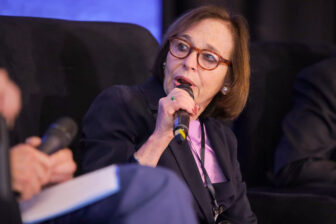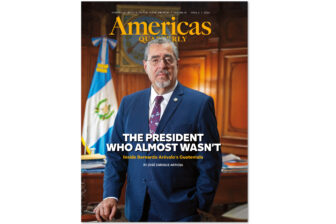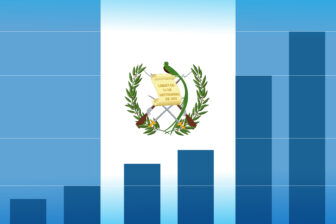Former First Lady Sandra Torres and Bernardo Arévalo—an academic, former diplomat, and son of a famed revolutionary president—are headed to a runoff election on August 20 after a first-round vote that took many by surprise. Polls consistently showed Torres as a front-runner and Arévalo trailing far behind. The race had oscillated wildly, especially as three other popular candidates who had been polling strongly, Roberto Arzú, Thelma Cabrera and Carlos Pineda, were disqualified from the race by elections authorities on uncertain grounds. These and other controversies led the “null vote” option to earn 17% of the vote, a higher share than any single presidential candidate.
AQ asked observers to share their reaction.
Marielos Chang, political science professor at the Universidad del Valle Guatemala
The biggest surprise of the election is without doubt the success of the center-left Movimiento Semilla political party and its president candidate, Bernardo Arévalo. In Congress, the party will go from 7 seats to become the third-largest block with 24.
If they had told us three months ago—when the presidential campaign began—that Arévalo would have enough votes to advance to the second round, no one would have believed it. However, the constant interventions by the Supreme Electoral Tribunal; the boisterous removal of Carlos Pineda from the race after placing first in the polls; the barring of Thelma Cabrera and Roberto Arzú from the race; the evident alliance of Zury Ríos with the Foundation Against Terrorism; and rumors of plans of fraud by the ruling Vamos party; all of this in the end played against the status quo political class.
This is historic, because Arévalo managed to advance to the second round in a country where the formula to win had long been million-dollar campaigns, a lot of air time on national TV, and the blessing of the economic elites. Arévalo and Movimiento Semilla had none of this. It seems that many voters decided, at the last minute, to settle the dilemma of choosing an option from among twenty choices by casting a vote for the most hopeful option.
Claudia Méndez, investigative reporter at ConCriterio
This election has been a roller coaster, with a great deal of controversy over the past six months. However, a few elements remained clear throughout. First, the public’s “descontento” or unhappiness with the status quo, was always a key factor. More people voted “null” than for any single candidate, showing that voters simply don’t feel adequately represented by the political parties on offer.
But that same “descontento” led to the biggest surprise of the night: the surge of center-left candidate Bernardo Arévalo from the Movimiento Semilla party. Voters sent a clear message here: They want disruption—but within the system—and to reject traditional politics. The Movimiento Semilla party dominated the congressional elections in the metropolitan Guatemala City area, which has traditionally been considered a bastion of conservatism. This shows that voting patterns are changing in important ways, especially among younger voters, to the advantage of the center-left.
Almost as surprising is that Vamos, the party of the incumbent president Alejandro Giammattei—who could not run for reelection and is historically unpopular due to allegations of corruption—is bucking another historical trend. The sitting president’s party almost never does this well, but its presidential candidate, Manuel Conde, almost made it to the runoff. Giammattei’s strategy to court mayors in a full 2/3 of municipalities paid off. The party’s block in Congress will grow from 17 seats to 40, and it won 132 of Guatemala’s 340 mayoral races. This will be a strong counter-weight to momentum for change.
Meanwhile, Arévalo has become the front-runner in the presidential race almost by default, because he is facing Sandra Torres. She is the country’s perennial runoff candidate—who never wins. Her high unfavorability ratings and repeated runoff losses have led to the political maxim, “She makes presidents.” She has a solid national base of voters, but it has not been enough to overcome her reputation as a political class insider at a time when the public is fed up with status quo politics. In the last two elections, Guatemalan voters chose Jimmy Morales, a comedian with almost no political experience, and then Alejandro Giammattei, a doctor with almost no political experience, over Torres.
The major change this election heralds is that it is becoming ever more difficult for the political class to manipulate Guatemala’s voting public. Guatemalan voters bucked the polls splashed across front pages for weeks. There are no longer any pre-ordained candidacies, as indicated by the precipitous fall of former favorite Zury Ríos.








